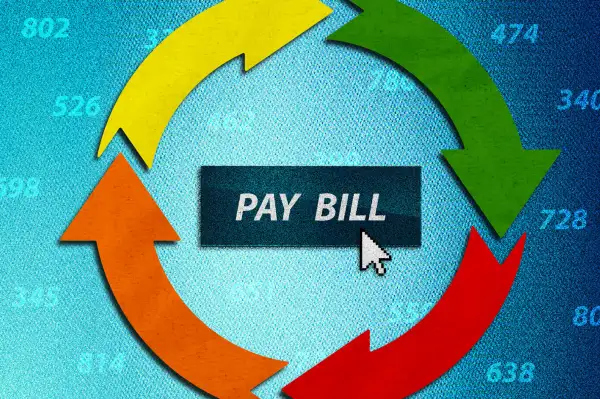The Hidden Cost of Using Everyday Bills Like Netflix and Rent to Boost Your Credit Score

New ways to instantly increase your credit score are sprouting up. Given that so much of modern financial life — including access to credit cards, loans and apartments — hinges on those three digits, signing up for a program to quickly boost your credit score may sound like a no-brainer.
Credit bureaus, credit-scoring agencies and fintech companies have devised a slew of credit-building programs in recent years that are marketed as ways to juice your credit score by factoring in on-time payments for everyday bills, such as rent, utilities or even Netflix. Sometimes the score increase is immediate, according to the advertisements.
However, some consumer advocates warn that these types of programs might not be as helpful as they appear — and have the potential to actually harm the financially vulnerable folks the programs are targeted at.
Experts say that even the free credit-boosting programs from well-established credit companies like Experian, one of the “Big Three” credit bureaus, and FICO, a major credit-scoring firm, come with notable catches. Both firms launched novel credit-boosting programs in 2019 in a bid to expand access to credit to people with little, no or bad credit history.
Many similar programs, like rent-reporting initiatives by tech companies Esusu and Piñata, have cropped up since.
“These services are marketed as free to the consumer, but there is a cost,” says Lindsay Sain Jones, a credit expert and legal studies professor at the University of Georgia. Jones, who spoke with Money in August 2023, notes that cost is giving up total access to your transaction information.
Some come at a literal cost due to their fees. But even if you pay, there’s no guarantee that your score will actually improve, experts say, and the extra financial data that you share could end up being used against you.
“You might provide all that access, and you might not get any boost at all,” Jones says. “But what is sure is that you've given up your data, and you probably didn't read the terms of use — what they can do with that data, how long they can keep it or what other purposes they might come up with.”
How credit-building programs work
The lifeblood of our economy is credit. In the simplest of terms, credit is an agreement that a borrower will pay back the money they owe to a lender. Credit scores are a way to quickly gauge how likely a borrower is to pay back the money on time.
A major problem with this system is that more than 25 million Americans are considered to be “credit invisible,” according to the Consumer Financial Protection Bureau (CFPB), the federal agency tasked with regulating consumer credit.
Credit invisible people — who are often low-income earners and people of color — have no credit history whatsoever, making it extremely difficult for them to get access to basic financial products like credit cards, mortgages or other personal loans. The CFPB says another 19 million people technically have some credit history but not enough to generate a credit score, leaving them much in the same financial predicament.
Enter credit-boosting programs, which are often explicitly marketed as ways to include these types of people in our financial system without forcing them to take on debt.
The basic pitch: Allow people to opt in and use payments for their non-credit bills — like Netflix subscriptions, water bills, rent, phone payments, etc. — to beef up their credit reports and, ideally, their scores.
In the case of Experian Boost and UltraFICO, the programs are free, but they require that you provide the companies with extensive access to your financial accounts, such as telecommunications accounts or bank-account transaction histories. (In an email to Money, a FICO spokesperson refuted the characterization of the required financial access to use the program as "extensive" but did not clarify how many months or years of transaction history it uses to generate its scores.)
In Experian’s case, the company combs through the past two years of your transaction history to see if you have any payments that are eligible for the program. If you do, the company will add the on-time payment to your credit file, which could result in a slight increase to your credit score. Of the people who saw score increases, the company's website says the average uptick was 13 points. Not everyone sees an increase, and the company did not share data on how often that is the case.
In addition to these two popular programs, several other lesser-known companies charge a fee to include on-time payments like rent to the credit bureaus. In some cases, the company may charge the renter or the landlord. Which of the “Big Three” credit bureaus (Experian, TransUnion and/or Equifax) the payment is reported to varies by program.
Esusu, a rent-reporting startup, for example, works directly with landlords and property managers to report tenants' on-time rent payments.
In 2021, the company partnered with the Federal Housing Agency-backed Freddie Mac to help boost the credit scores of certain renters. An Esusu spokesperson said its rent-reporting program has helped establish more than 50,000 new credit scores for renters who would have otherwise not had one. The average increase for renters who already had credit scores was an average 45 points after reporting their on-time rent payments, the company said.
Ariel Nelson, an attorney who specializes in credit reports for the National Consumer Law Center (NCLC), explained in a 2023 interview with Money that programs modeled like Esusu's are generally the best-case scenario, though the NCLC's guidelines prefer ones that are "opt-in only, not opt-out or mandatory," she says. (In Esusu's case, the renter has to choose to opt out.)
Not all credit-boosting programs are created equal, and “consumers should be wary” of any companies that promise to increase your score or charge upfront, Nelson says.
Beware the fine print
It may come as a surprise, but you don’t have just one credit score; you have dozens.
The two most popular types of scores are FICO and VantageScores. They are brand-name scores, so to speak. Those two types are then broken down into several different versions, from FICO Bankcard Score 9 to VantageScore 4.0. Different lenders and creditors check various different models when you apply.
In addition to all those scores, credit card companies and personal finance apps may generate their own versions of your credit score, which are typically for educational purposes and aren’t actually viewed by lenders.
This context is crucial for understanding how credit-boosting programs truly operate because they tend to only increase certain types of credit scores.
Take Experian Boost, for example. A disclosure on the company’s website states that the program only affects your FICO Score 8, a type of score that “most mortgage lenders do not consider,” according to Experian. As for FICO’s own credit-boosting program called UltraFICO, the boosted score is essentially an entirely new version of your credit score.
On the other hand, Esusu says it reports rent payments to all three credit bureaus; it generally affects FICO Scores 9 and above and VantageScores 3.0 and above.
Nelson of the NCLC notes that this caveat could lead you to believe that your credit score is better than it actually is.
“Consumers may think that they have the credit score needed to get a certain type of loan, but that may not be the case,” Nelson says.
'Privacy costs' of juicing your score
Maybe your FICO Score 8 did improve 13 points under Experian's program, but the lender you're applying to doesn't check that specific score. Now you've handed over your personal data without an actual benefit.
That scenario is central to what Jones refers to as the “privacy costs” of using these types of programs.
“Not every consumer will actually qualify for a boost after providing the information,” she says, “and even if a consumer does, the boost may not make a difference.”
On the other hand, the company you agreed to provide the information will benefit regardless.
According to Experian Boost’s terms of use, you have to agree to let Experian and third-party companies "gain recurring access to your financial account(s), and utility, telecom and other service account(s).” Then, those undisclosed companies can use your account information to send you personalized offers and ads for financial products.
Jones notes that a surprising amount of intimate details can be included in your bank account history, "information like where we seek medical care or which political candidates we support."
UltraFICO does not publicly list its terms of use like Experian. When asked by Money, the company did not provide more information on how far back into an enrollee's transaction history it goes, or if any of that data gets shared with financial advertisers. A spokesperson said the credit-scoring program uses checking, savings and money-market account behavior to generate new UltraFICO credit scores, which are intended to help people with thin credit files.
As for Experian, a company spokesperson did not comment on how it uses the financial data gathered from Boost for advertising purposes but said that users can opt out of promotions.
"We have invested heavily in improving our consumer products, making them more useful and giving consumers more control of their data," Jeff Softley, group president of Experian Consumer Services, said in commentary shared with Money. "Being able to build credit debt-free is a good step in improving financial inclusion and achieving financial power for all."
Consumer advocates worry, though, that even when the person applying knows exactly how the programs work and what data they’re choosing to give up, providing the credit bureaus with evermore access to sensitive data poses risks on its own.
“Continuing to use the Big Three as the conduit for data brings a host of problems, including accuracy problems,” Nelson says.
As credit bureaus and reporting agencies are collecting an increasing amount of information, they are getting sloppier with the data in credit reports, experts say. And inaccuracies in these reports can have major consequences — such as being denied a loan, a job or a place to live.
In 2023, the Federal Trade Commission received about 713,000 complaints from consumers related to errors and other issues with their credit reports, which amounts to the largest number of such complaints ever recorded by the agency in one year.
This year is on track to nearly double that record. In just the first half of 2024, the FTC already received 650,000 complaints.
“I am concerned given the long-time lack of consumer control over our data,” Nelson says. “We have no choice but to be beholden to the Big Three because the credit system is an oligopoly."
More from Money:
The Best Financial Planners in America






